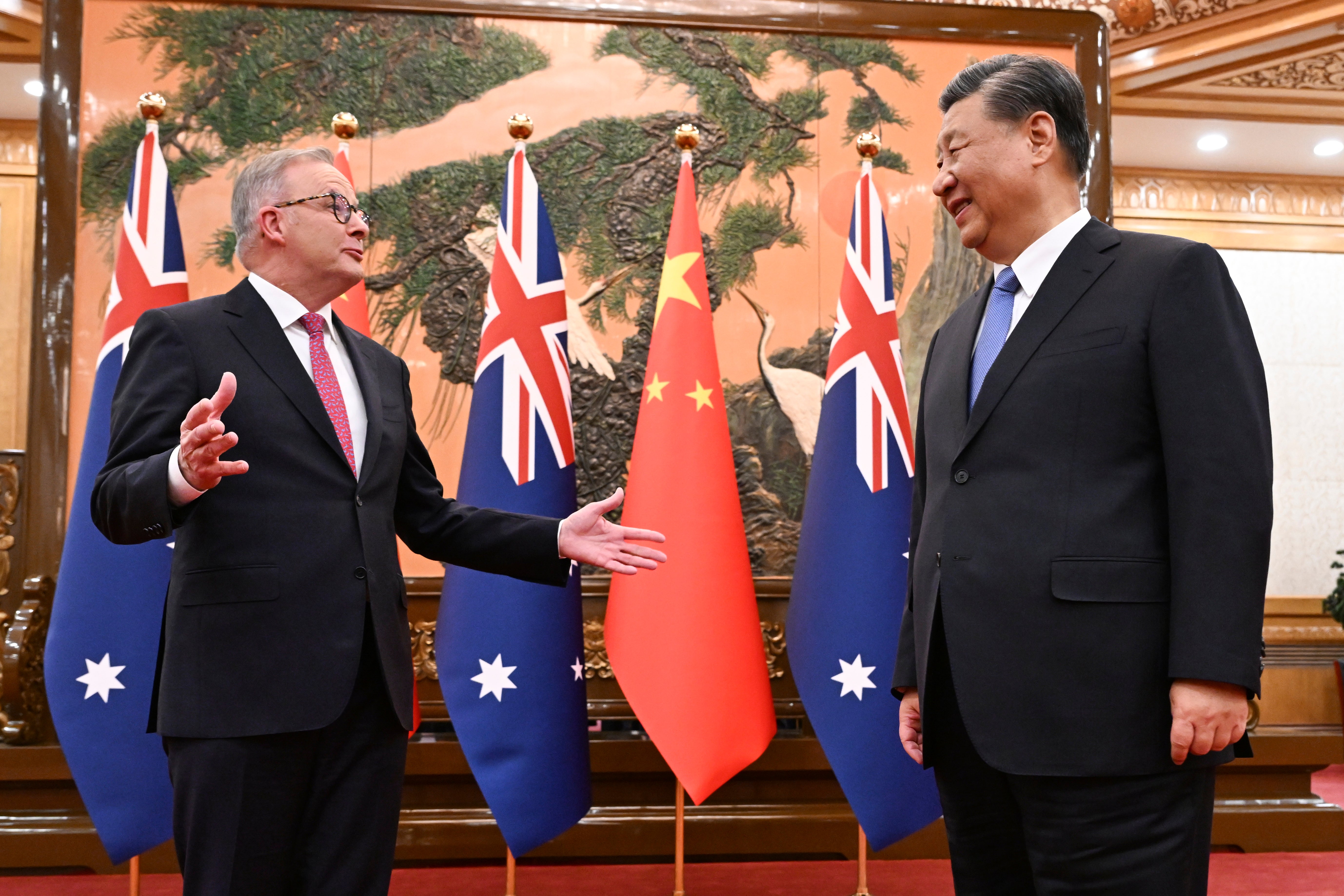
China has accused Australia of “hypocrisy” and “systemic racism” after Beijing was confronted at the United Nations over alleged abuses in Xinjiang and Tibet.
The Chinese envoy to the UN also blasted Australia for ignoring the “living hell” in Gaza where Israel has conducted an onslaught of air and ground attacks since the 7 October 2023 Hamas attack.
Australia, the US and the UK were among 15 countries that issued a joint statement at the UN on 22 October against the alleged human rights abuses in Xinjiang and Tibet.
The statement cited a UN assessment from two years ago that there had been human rights violations against Uyghur Muslims in Xinjiang.
The August 2022 report by the UN Office of the High Commissioner for Human Rights concluded there had been “crimes against humanity” against Uyghurs in the western region of Xinjiang as well as other Muslims by Chinese authorities.
China had denounced the report as “illegal and void” and described it as “disinformation and lies fabricated by anti-China forces”.

"China has had many opportunities meaningfully to address the UN’s well-founded concerns," Australia’s ambassador to the UN, James Larsen, said.
He also raised concerns about "credible reports" of human rights abuses in Tibet, including “peaceful expression of political view”.
He said the Tibetans faced “restrictions on travel; coercive labour arrangements; separation of children from families in boarding schools; and erosion of linguistic, cultural, educational and religious rights and freedoms in Tibet”.
Today, 15 countries expressed serious concerns at the @UN about human rights in Xinjiang and Tibet. We urged China to uphold its international human rights obligations and implement all UN recommendations. Australia remains committed to universal human rights for all. pic.twitter.com/LrYzpNQjto
— Ambassador James Larsen 🇦🇺🇺🇳 (@AustraliaUN) October 22, 2024
Chinese foreign ministry spokesperson Lin Jian denounced the statement and said that issues related to Tibet were his country’s "internal affairs".
“Australia, long plagued by systemic racism and hate crimes, has severely violated the rights of refugees and immigrants, and left Indigenous people with vulnerable living conditions," Mr Lin told reporters.
"Australian soldiers have committed abhorrent crimes in Afghanistan and other countries during their military operations overseas.”
Mr Lin said the US and other western countries had “a bad track record in racism, gun violence, judicial injustice, wealth gap, abuse of force, unilateral sanctions, and other issues”. “These Western countries turn a blind eye to their severe human rights issues at home but in the meantime point their fingers at other countries. This says a lot about their hypocrisy on human rights,” he added.
China’s envoy to the UN, Fu Cong, chided Australia for maintaining silence on the Israeli war on Gaza that has killed thousands of Palestinians. "The human-rights situation that should gather the most attention at the committee this year is undoubtedly that of Gaza," he said on Tuesday.
"Australia and the US, among a few others, played down this living hell, while unleashing attacks and smears against the peaceful and tranquil Xinjiang.”
If the mounting death toll in Gaza was not enough to "awaken the conscience of a few Western countries”, Mr Fu said, “then their so-called protection of human rights of Muslims is nothing but the biggest lie".
Australian prime minister Anthony Albanese rejected the Chinese allegations and said that his government “will always stand up for Australia’s interests”.
Mr Albanese, asked for a response to the Chinese statement during his visit to Samo for the Commonwealth Heads of Government Meeting, said Canberra had been consistent in raising the human rights issue in China.
“We, of course, will always stand up for Australia’s interests, and when it comes to China, we’ve said we will cooperate where we can, we’ll disagree where we must and we’ll engage in our national interest,” Mr Albanese said. “And we’ve raised issues of human rights with China. We’ve done that in a consistent and clear way.”
The spat comes as Australia and China are working to revive economic and diplomatic relations, which suffered a setback over questions about the origin of the Covid virus.
The Albanese government has been working to stabilise relations since coming to power in 2022 and Beijing has reciprocated by lifting several trade bans.



.png?w=600)



